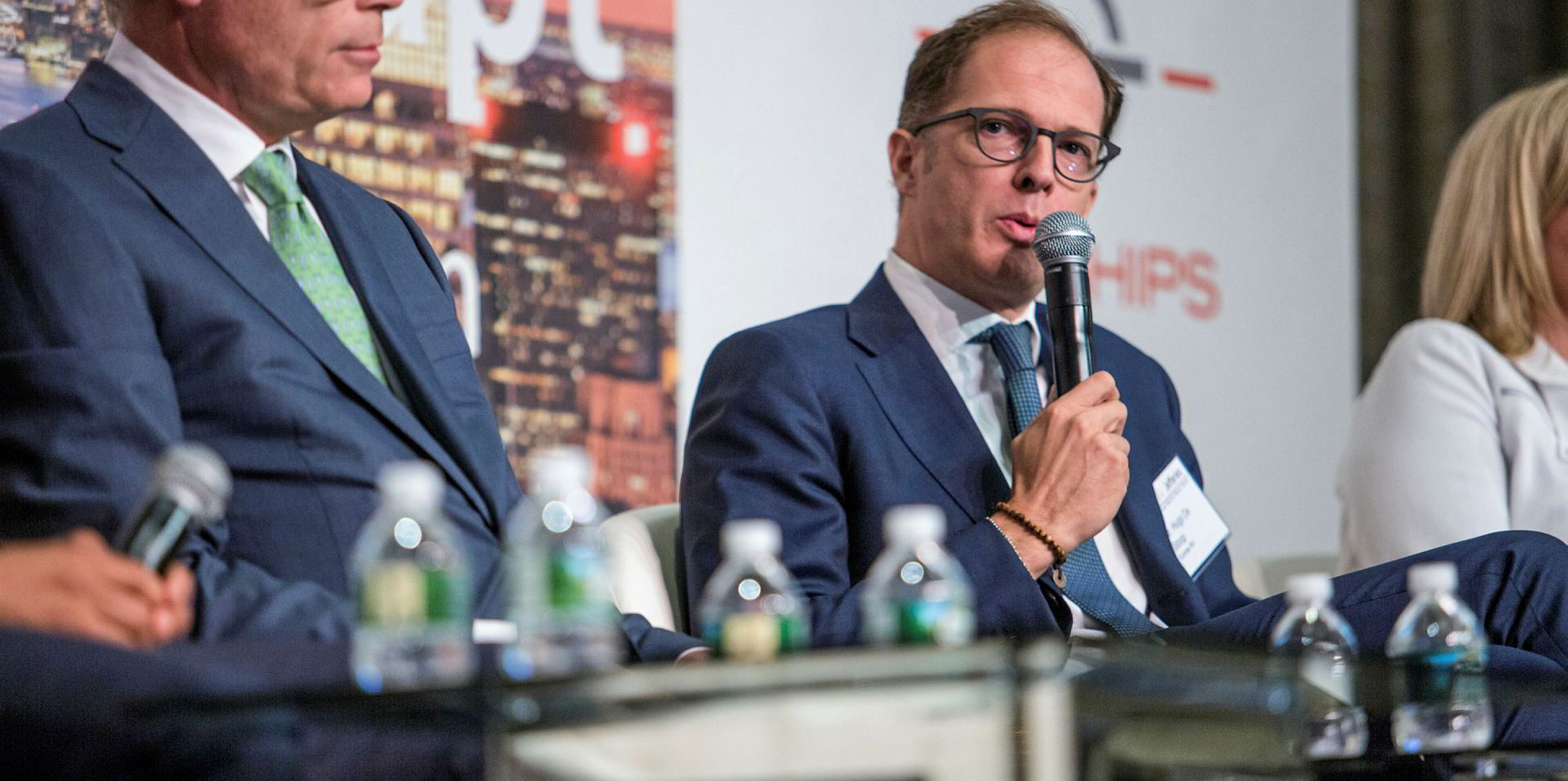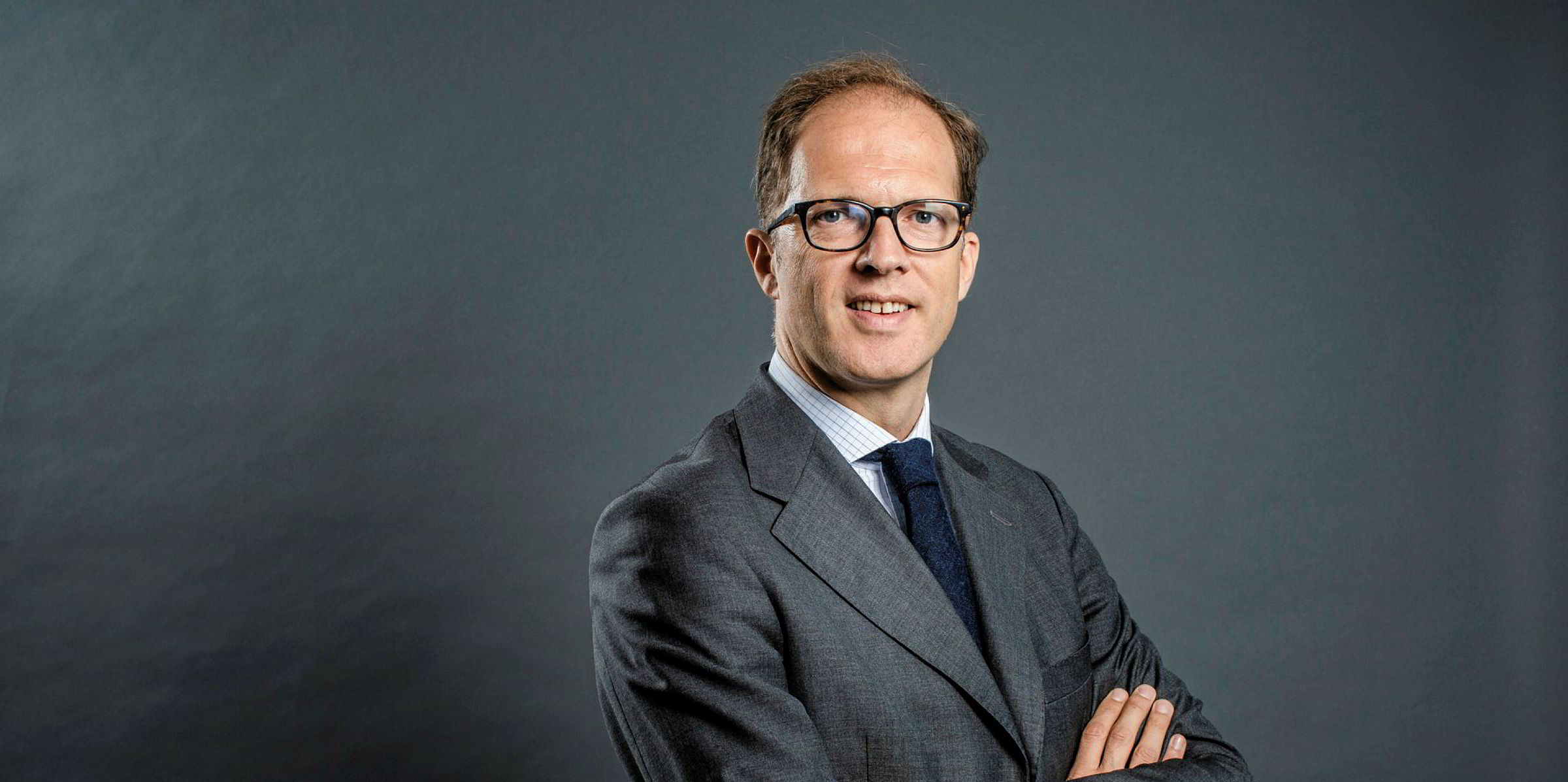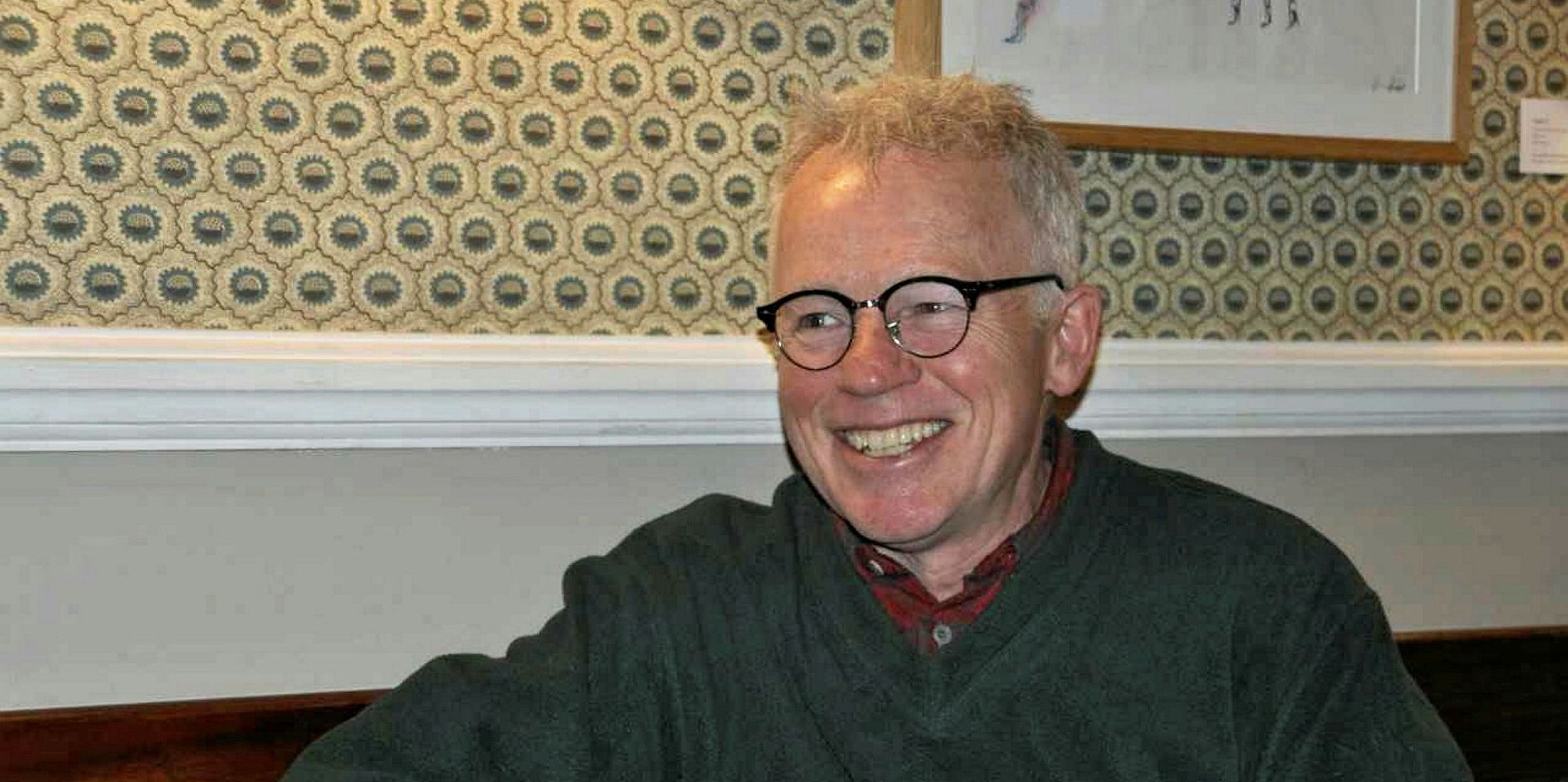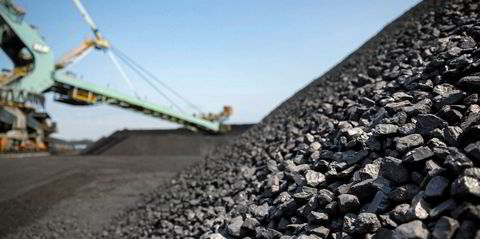Belgian VLCC giant Euronav is intensifying efforts to retrofit part of its fleet with scrubbers in what would be a dramatic turnaround from its former opposition to the exhaust-gas cleaning devices, market sources said this week.
Euronav is said to have carried out recent enquiries with scrubber suppliers with a programme likely to follow, the sources added.
Euronav’s Brian Gallagher, head of investor relations, did not exactly throw cold water on the notion during a sideline interview with TradeWinds this week at Clarksons Platou Securities tanker seminar in New York.
But he also would not confirm that a decision had been taken.
The topic also bubbled up during Gallagher’s appearance on an afternoon panel beside Scorpio Tankers president Robert Bugbee as the pair fielded questions from Clarkson Platou analysts Omar Nokta and Frode Morkedal.
“We’ve always had the view that we could potentially have a second-mover advantage here” on scrubbers, Gallagher told TradeWinds.
He added that Euronav had been reluctant to become a “first mover” — and commit to a $3m to $5m retrofit cost per vessel — without clear visibility on spreads in fuel costs and associated returns.
The reality of spreads between high sulphur fuel oil (HSFO) and compliant fuels — to date exceeding predicted margins of $200 to $250 per tonne — has become clear since the 1 January IMO 2020 implementation.
“We’re continuing to monitor it and preserving our optionality,” Gallagher said of Euronav’s strategy.
Gallagher also noted that Euronav has 12 scheduled dry-dockings on its fleet during 2020 after having only one last year. While this is happenstance tied to vessel age, it could afford the Belgian owner lower costs associated with any retrofits.
A move into scrubbers by the world’s largest public crude-tanker company might be most notable for the about-face it would represent from the policy of former chief executive Paddy Rodgers, who resigned last February.
Rodgers had been perhaps shipping’s most high-profile critic of the carbon-screening devices. At one point in 2018 he compared their use to shipping’s version of Volkswagen’s “dieselgate” emissions scandal.
Euronav’s position became more nuanced under Rodgers’ successor, current chief executive Hugo de Stoop, who last June told a financial conference: “Euronav is not against scrubbers. We are not scrubber haters or scrubber lovers. We are scrubber watchers.”
Euronav repeated its openness to scrubbers last September, when it also revealed it had invested $200m to purchase 420,000 tonnes of compliant fuel and marine gasoil (MGO) for storage aboard its ULCC, the 442,000-dwt Oceania (built 2003).
The fuel, bought at $447 per tonne for the 0.5% sulphur fuel and $566 per tonne for MGO, is serving as bunkers for Euronav’s fleet at a current savings of some $200 per tonne from the market price of compliant fuel.
Euronav’s owned and operated fleet consists of two ULCCs, 42 VLCCs, 27 suezmaxes (two jointly owned) and two floating storage and offloading (FSO) units, also jointly owned.
Euronav’s profit on the fuel gambit approached $52m in December, according to a research note from Clarksons Platou’s Morkedal.
“The market has belatedly understood what we’re trying to do with our fuel strategy,” Gallagher told TradeWinds.
“However, that’s a finite advantage. It’s not going to last forever. It will be something between six and eight months worth of fuel.”
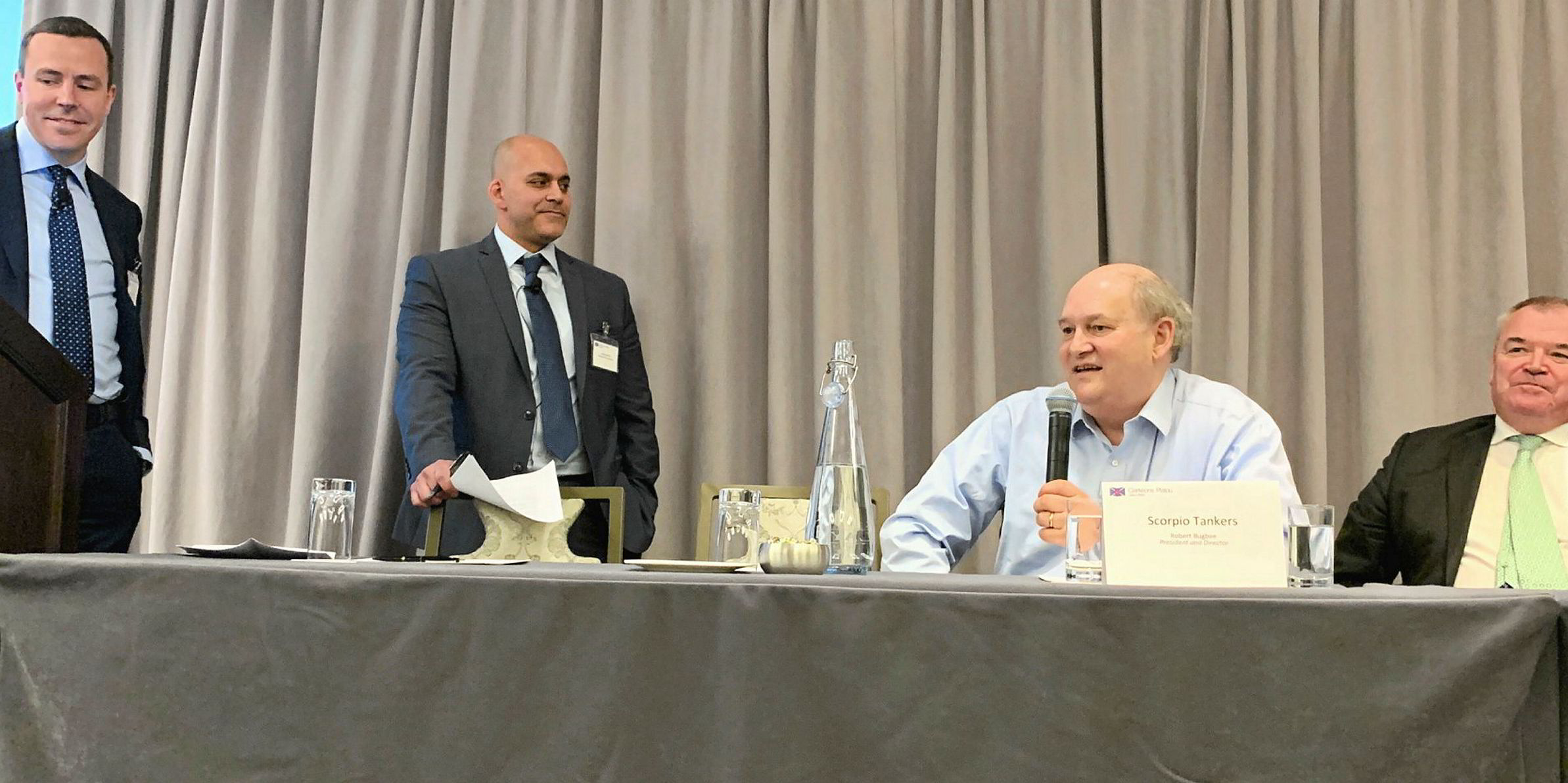
On the Clarksons Platou programme, Gallagher found himself paired with Bugbee, who has invested heavily in scrubbers across the fleets of both Scorpio Tankers and Scorpio Bulkers. Retrofits will continue through the first half of this year.
Never one to resist an opportunity for mischief, Bugbee told Gallagher: “Euronav will hopefully never get scrubbers. Hopefully they’ll remain one of our best customers and help out the product tanker market.”
Bugbee added: “Anyone considering getting scrubbers — be really careful. It’s arduous. We cannot wait to finish our scrubber programmes. It is very intensive on our technical department. And it’s not cheap. I can’t imagine what the calculation is for someone who hasn’t ordered scrubbers yet.”
Gallagher responded that Euronav “has never had a board-level view that dogmatically we’re against [scrubbers].”
He added: “We’re looking at all the moving parts. We have a strong balance sheet that allows us to move relatively quickly.”
Gallagher said that the ULCC play had been a winning strategy. “We think it bought us some time, but it is a finite period of time,” he said.
